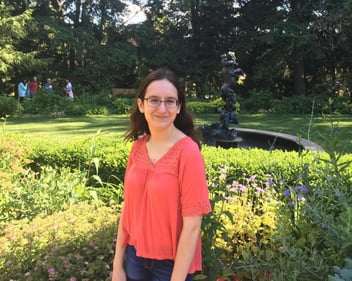By the time our 2020 Op-Ed Competition closed on March 17, much of the world looked markedly different from when the contest opened just two weeks earlier. Ji Tianqi’s (Singapore) winning piece not only deftly incorporated the ever-evolving news cycle but also shone a critical spotlight on the accompanying rise in xenophobia and racism during this time. We talk to Tianqi about the dangers of subtle discrimination, how her first-hand experiences shaped the piece, and her book recommendation for taking your mind off the news.

Our guest judge Syreeta McFadden said that your piece “reminds readers that [xenophobia] is a kind of virus in a time where we need to work collectively to curb the spread of a deadly pandemic.” Why was it important to you to shine a light on this topic?
In times of crises, what divides society is often not the direct threat itself but instead people’s tendency to pinpoint the blame on a group they deem as “outsiders.” Often, people are unaware of their bigotry due to the misconception that discrimination can only exist if it’s blatant, when in fact subtle discrimination does just as much damage. As someone who lives in a city characterised by its diversity, I find such a misconception to be a dangerous one, especially in times when unity is needed more than ever. I took this opportunity to debunk this misconception as well as highlight the consequences of discrimination in the context of a pandemic.
Your piece is extremely timely. How did you go about researching and writing this piece, especially with constant news updates?
First, I settled on a central aspect of the pandemic to focus on. That helped me sift through the never-ending updates and heaps of information on COVID-19. In my case, my cousin’s experience with xenophobia in Singapore formed the central focus of my research. I also knew the points that I wanted to make in my piece, which I developed or altered along the way as I read the news and undertook further research.
Did you face any challenges when writing this piece? If so, how did you overcome them?
I wanted my piece to be an exploration of the link between the current pandemic and social disharmony instead of a charged piece that demonises those guilty of contributing to societal disunity. To ensure nuance in my writing, I made sure that my research and final article were both balanced between highlighting the repercussions of disunity in such a time and understanding why people may act in such ways through considering their perspectives.
What book would you recommend WtW community members read when they want to take their mind off the news?
For those who are interested in learning more about the topic of discrimination but are apprehensive about the heaviness of the topic, I would recommend Trevor Noah’s Born a Crime. It provides harrowing and humourous recounts of the author’s experiences as a bi-racial child growing up in apartheid South Africa where racial segregation was the norm and being mixed race was deemed as a crime in itself. This book has broadened my horizons on the issue of discrimination while also being fun to read given its use of humour.





